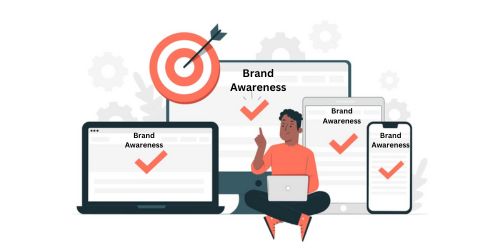In a world where marketing channels, budgets, and audience behaviors change quickly, content marketing is vital, especially for startups looking to grow and connect with their target audience. However, finding the best content marketing resources to support your business can be tasking and equally overwhelming. From creating engaging content to analyzing your content performance, countless tools are available, and it can be hard to know which ones will truly help. If you’re a startup founder like me, you’ll understand that every penny counts and content marketing offers an incredible return on investment when done right.
Key Points.
- Content Marketing Resources: Tools, platforms, and guides that help businesses create and distribute content effectively, including SEO tools, design software, and educational materials.
- Best Tools for Startups: Tools like HubSpot, Google Analytics, SEMrush, Canva, Grammarly, and others support startups by streamlining content creation, tracking performance, and improving SEO.
- Benefits of Content Marketing: Content marketing drives brand awareness, improves SEO, generates leads, and boosts conversions, helping startups build relationships with their audience.
- Cost-Effectiveness: Content marketing is more affordable than traditional advertising and can offer long-term returns, especially with evergreen content like blog posts.
- Social Media and Referrals: Effective content marketing encourages social media engagement and referral-based growth, which helps startups expand their reach and attract loyal customers.
What Are Content Marketing Resources?
Content marketing resources are the tools, platforms, and guides that help businesses create and share content effectively. They include SEO tools for finding the right keywords, design software for creating visuals, and email marketing services for reaching your audience. They also include educational materials like blogs, online courses, and ready-to-use templates that simplify the process.
Using these resources can save time, cut costs, and improve results for startups and small teams. Whether you’re doing content marketing alone or with a team, having the right tools can make a big difference in growing your business.
The Best Content Marketing Resources and Tools for Startups.
I remember sitting at my desk late at night, staring at a blank screen, unsure of how to attract customers without spending a lot on marketing. Should I blog? Focus on social media? Work on SEO? The options were so many and I couldn’t make any decision. However, after some series of research, I was able to find the resources that helped me turn content into a major factor for growth.
Here’s a list of 10 of the best content marketing resources and tools for startups:
#1. HubSpot:
HubSpot is a powerful tool that combines everything you need for inbound marketing in one place. It offers a range of features to help with content marketing, like blogging, email campaigns, social media scheduling, and tracking your results. For startups, it’s a great way to simplify how you create and share content. Plus, its easy-to-use design means you don’t need to be a marketing pro to make it work.
HubSpot has made a huge difference in how I plan and measure content. With its analytics tools, I’ve been able to figure out exactly what type of content clicks with our audience, helping us create more of what they love. It’s been a game-changer for building a strategy that works.
#2. Google Analytics:
You can’t have a solid content marketing plan without tracking how well your content is doing. That’s the essence of Google Analytics. it’s an essential tool for understanding your website traffic, user behavior, and conversions. In simple terms, it shows you what’s working and what’s not.
For startups, keeping an eye on content performance is especially important. You want to make sure your efforts are actually bringing in results. Google Analytics helps you focus on topics that really connect with your audience, making your content more effective.
Here’s a simple Google Analytics Tracking Template designed to help you monitor your content performance.
#3. SEMrush:
SEMrush is a comprehensive SEO tool that provides resources for keyword research, site audits, and competitive analysis. It’s perfect for startups looking to optimize their content to rank higher in search engines. With SEMrush, you will be able to fine-tune blog posts and make sure they are optimized for SEO, helping increase organic traffic significantly.
#4. Canva:
I’m no graphic designer, but Canva made me feel like one. It is a go-to design tool. Its drag-and-drop interface makes it easy for anyone, even those without design experience, to create eye-catching graphics and visuals for blogs, social media, and ads. I’ve used Canva to design engaging images for social media posts and promotional content. It’s saved time and money, as I no longer need to hire a designer for every campaign.
#5. Grammarly:
Grammarly is a tool that helps enhance your content by focusing on grammar, spelling, punctuation, and clarity. It’s not just for correcting mistakes, though. It can also offer suggestions for improving sentence structure, making your writing more engaging and easier to read. By using it, you can elevate the quality of your content, ensuring it’s polished and professional. Grammarly also includes features like tone detection and readability scores, which help tailor your content to the intended audience and the desired style. This makes it a valuable resource for content marketers who want to maintain a high standard in their written materials.
#6. Ahrefs:
Ahrefs is a useful tool that helps businesses with SEO and digital marketing. It gives detailed information about a website’s performance, keyword rankings, backlinks, and overall SEO health. Marketers use Ahrefs to find out which content works best in their industry, spot gaps, and discover new keyword opportunities.
It’s great for analyzing competitors, and showing what keywords and strategies are driving traffic to their sites. This helps create content that has a better chance of ranking higher. Ahrefs also lets you track how your content performs over time, so you can keep improving it for better results. By using Ahrefs, marketers can make smarter decisions to improve their content strategies and boost their visibility on search engines.
#6. Trello:
Trello is a tool that helps you organize and keep track of your projects. It’s great for planning content schedules, assigning tasks to team members, and seeing how far along each project is. If you’re working on several things at the same time, Trello makes it easier to stay organized and ensure everything is on track. It’s an essential tool to help you stay on top of all your work.
#7. BuzzSumo:
BuzzSumo is a tool that helps you find the most popular content in your industry, get ideas for new content, and track how well your own content is performing. For startups, knowing what’s currently trending can be a game-changer. It helps you create content that your audience will connect with and enjoy. I’ve used BuzzSumo to spot hot topics in the guest posting field, which allowed me to adjust content to better align with what people are interested in. This way, we can stay relevant and attract more attention to our work.
#8. Mailchimp:
Mailchimp is a flexible tool that helps businesses manage their email campaigns. It lets you create and send personalized email newsletters, making communication with your audience easier. With its simple interface, you can divide your email list into groups, ensuring the right people get the right content at the right time, which boosts engagement. Mailchimp also gives you detailed reports on how your emails are doing, like open rates and click-through rates, so you can improve your strategy. Whether you’re sharing blog posts, product updates, or special offers, Mailchimp makes it simple to reach your audience effectively.
#10. CoSchedule Headline Analyzer:
CoSchedule Headline Analyzer is a tool that helps you create catchy headlines for your content. It checks things like word balance, emotional appeal, and SEO potential to see how well your headline will attract readers. The tool gives your headline a score to show how likely it is to grab attention. It also offers tips on how to improve your headline, such as changing its length or adding strong words. This makes it a useful tool for content marketers who want to create titles that drive more traffic and engagement.
Benefits of Content Marketing Resources
#1. Brand Awareness:

Content marketing is a great way to get your brand noticed. By creating content that connects with your audience, you keep your brand visible across different platforms like blogs, videos, and social media. The more people interact with your content, the more they’ll remember and recognize your brand later.
#2. Search Engine Optimization (SEO):

Good content helps your website show up on search engines. When your content is relevant and well-optimized with the right keywords, search engines like Google will rank your site higher. This means more people will find your site, bringing in more traffic. Over time, this improves your site’s reputation and credibility.
#3. Higher Conversion Rates:
Content that speaks to what your audience wants and needs helps turn visitors into customers. Things like case studies, product demos, and strong calls to action (CTAs) encourage people to take the next step—whether that’s buying something or signing up for updates. The more targeted your content, the more likely people will become paying customers.
#4. Lead Generation:
Content marketing can help you collect leads by offering useful resources in exchange for contact information. Things like downloadable eBooks, white papers, or webinars can help you grow your email list. Visitors who engage with your content are more likely to be interested in your products or services.
#5. The Content Marketing Connection:
By offering valuable content that educates, entertains, or informs, you build a relationship with your audience. This connection turns casual readers into loyal customers who trust your brand and keep coming back.
#6. Cost-efficient:
Compared to traditional advertising like TV or print, content marketing is more affordable. You don’t need a huge budget to create great content. Plus, good content can keep working for you in the long run—like blog posts that continue to bring in traffic for years.
#7. Social Media Engagement:

Social media thrives on sharing content. By posting valuable content, like blog posts or videos, you can engage with a wider audience. Social media helps bring people to your website and lets you connect directly with your audience, building a loyal community of followers.
#8. Earning Referrals:
People like to share content they find helpful. When your content provides value, your audience is more likely to share it with others. This type of word-of-mouth helps spread your message and bring in new leads, who often trust your brand more because they heard about it from someone they know.
#9. Boost Loyalty:
Content marketing can keep your audience engaged by offering them something of value. Whether it’s helpful tips, entertainment, or exclusive deals, this keeps them invested in your brand. Loyal customers are more likely to buy again and recommend your brand to others.
#10. Educating Customers:
Great content helps customers understand your products, the industry, and how to solve their problems. By providing helpful tutorials, guides, and case studies, you show that you’re an expert in your field. This builds trust and helps customers make smarter decisions.
Conclusion.
Content marketing is an excellent strategy for startups because it’s affordable and helps them connect with potential customers, boost brand visibility, and grow sales. With the right tools and resources, the whole process becomes much easier, making it possible to see better results and support long-term growth. By focusing on creating valuable content, tracking how well it’s performing, and using SEO to improve search rankings, startups can keep up in the fast-moving digital world. This approach not only makes it easier to reach the right audience, but also sets the stage for ongoing success as the business continues to grow.
Frequently Asked Questions.
#1. What are content marketing resources?
Content marketing resources are tools and platforms that help businesses create, distribute, and measure content. These can include anything from blogging platforms to email marketing software and analytics tools.
#2. Why is content marketing important for startups?
Content marketing is crucial for startups because it helps them raise brand awareness, connect with the right audience, and drive traffic and sales, all while working with limited budgets.
#3. How can HubSpot help with content marketing?
HubSpot offers several marketing features in one platform, such as blogging, email campaigns, and social media scheduling. It makes content creation easier and helps businesses track how well their content is performing.
#4. What is Google Analytics used for in content marketing?
Google Analytics helps businesses track how many people visit their website, what they do on the site, and if they take any actions, like making a purchase. This data helps businesses understand how well their content is working and adjust their strategy.
#5. What benefits does Canva provide for content marketing?
Canva is a simple tool that lets anyone create beautiful visuals for things like blog posts, social media, and ads. It’s easy to use, even for those without a design background, and helps save time and money.
#6. What is the significance of social media in content marketing?
Social media extends the reach of content, allowing businesses to engage with a larger audience, drive more traffic to their websites, and build relationships with potential customers.
#7. How long does it take for content marketing to show results?
Content marketing is a long-term strategy, so it can take several months to see significant results. However, with the right tools and consistent effort, you should start seeing growth over time.






